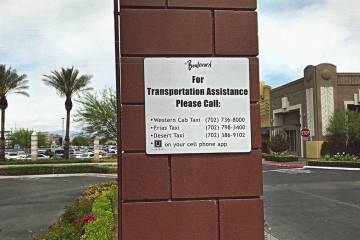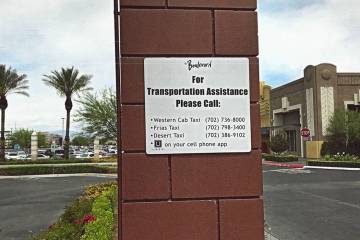Scammers prey on patriotism in yet another Facebook ruse
I am furious.
My fury is not because I’ve been hacked three times on Facebook and some jackass is trying to exploit my friends. Most of them are a savvy lot and spot the fraud quickly. At least I hope so.
My rage is because scumbags are taking advantage of Americans’ patriotism and respect for people who serve in the military.
I am a woman of a certain age, so I must appear stupid. Suddenly, I am bombarded with friend requests on Facebook from handsome military men in uniform. From generals to sergeants, although one would-be friend spelled it “sagent,” which seemed rather odd for a serviceman.
The friend requests come out of the blue. They don’t know me. They are not friends of friends.
They are just looking for suckers.
I don’t friend them.
But other women do. Fewer men have been conned by women in military uniform.
My anger at this exploitation intensified because there was an increase around Memorial Day, the holiday when our military members who died while in the service were honored with respect and dignity.
I have grandparents buried in Arlington National Cemetery. In March, I visited their graves and saw the hundreds of thousands of other graves buried across 624 acres. In the distance, adjacent to the cemetery, the Air Force Memorial soared.
I can’t express how I would feel if my grandfather’s photo was abused to con lonely women out of their money.
Yet that’s exactly what’s happening on Facebook.
I didn’t fall for it, but enough people have fallen for it, that Facebook has a warning page and the U.S. Army Criminal Investigation Command issued its own warnings.
Even before I read their warnings for this column, there are certain obvious clues.
Often they say they “work at U.S. Military,” without identifying the service. And many attended “U.S. Military Academy” without naming which one, like Luisenrique Moquete.
Often, they are widowed. They tend to live in Kabul, Afghanistan.
I’ve received two requests from Winnie Ward Hemby, but they are different men. One is pictured with a child; the other is not.
Spelling is not their strong point.
Chapman D. Kim is a commander in “cheif” in the U.S. Army and lives in Syria.
I’ve heard from “Sagent” Donald Aderson, Shelby Broughton Eborn and a doctor who bucks the trend, he is not the dashing and handsome fellow who seeks my charms.
Not to mention my help, aka, my money.
The most offensive was “Chavez Pinion” who stole a photo of a real hero receiving his medal from President Barack Obama. The con man had nine friends. All women. Of course he was widowed. The picture looked real but I couldn’t find his name on the White House Facebook page. I suspect someone just ripped it off.
The Facebook page https://www.facebook.com/MilitaryRomances warns about military romance scams and provides tips.
It says “Real soldiers don’t need: A satellite phone, calling card, or permission to call; access to your bank account; money shipped by Western Union or MoneyGram; permission from a “fiance” to go on leave or retire; an “agent” to ship a box; anyone to pay for medical expenses (for themselves or their family), money for food, anyone to pay for a plane ticket to go home or on leave.
Some women are posting photos of scammers. I reviewed them but didn’t find my would-be scammers.
The U.S. Army Criminal Investigation Command put out its own warnings:
DO NOT SEND MONEY! Be extremely suspicious if you are asked for money for transportation costs, communication fees or marriage processing and medical fees.
If you do start an internet-based relationship with someone, check them out, research what they are telling you with someone who would know, such as a current or former service member.
Be very suspicious if you never get to actually speak with the person on the phone or are told you cannot write or receive letters in the mail. Servicemen and women serving overseas will often have an APO or FPO mailing address.
Be very suspicious if you are asked to send money or ship property to a third party or company.
Be very suspicious if the person you are corresponding with wants you to mail anything to an African country.
Be aware of common spelling, grammatical or language errors in the emails.
Be very suspicious of someone you have never met and who pledges their love at warp speed.
I can laugh at Nigerian princes, but exploiting our military men and women makes me want to rip someone’s face off.
Between the hacks and the scams, I’m seriously wondering if Facebook is worth the hassle.
Jane Ann Morrison’s column runs Thursdays. Leave messages for her at 702-383-0275 or email jmorrison@reviewjournal.com. Find her on Twitter: @janeannmorrison























